MOSAIC YOUTH THEATRE OF DETROIT PRESENTS DEBATING DESTINY
BY JAMES ANTHONY TYLERSTUDY GUIDE







“My goal for Debating Destiny is to write a play that is truthful, funny, and ideologically diverse. I want audiences to reflect on the specific challenges that our younger generation faces and to think about how we can be of service in a positive way to help face these challenges.”
James Anthony Tyler is the recipient of the 3rd Annual Horton Foote Playwriting Award and an inaugural playwright to receive a commission from Audible. His plays include All We Need Is Us (Keen Company, currently streaming on all podcast platforms), hop thA A (currently streaming on Audible), Artney Jackson (World Premiere at Williamstown Theatre Festival, 2018 Edgerton Foundation New Play Award), Some Old Black Man (University Musical Society, Berkshire Playwrights Lab at St. James Place and 59E59 Theaters), and Dolphins and Sharks (LAByrinth Theater Company and Finborough Theatre in London). He has an MFA in Film from Howard University and a MFA in Dramatic Writing from New York University. He is also a graduate of The Juilliard School’s Lila Acheson Wallace American Playwrights Program. He was the Staff Writer for the new OWN Network show Cherish the Day created by Ava DuVernay and is currently the Story Editor for a new Apple Drama Series.
What do you think the doors on the set symbolize?
Why do you think we kept the actors on the stage during the entire performance? What feelings does that evoke for you?
How was the title of the play represented in the story?
What do you think the different colors for each character represents?
If each character were a Pokémon, which would they be?
In the play, Udonis realizes that he is good at debate. He had never tried it before, but found it helped focus him and say what he wanted to say.
It is important in life to find out what your talents are you you can find fun and interesting ways to use them.
Whether it be for a job, school, or just for fun, your talents can be a great way to learn more about yourself and find unique ways to contribute to the world.
If you’ve started exploring your hidden talents, the first step is to look back. List the things you have achieved. Remember those activities that you enjoyed doing. Ask yourself, “What am I most proud of?” Looking back at childhood is also very important. What did you do when you were little, what classes did you went to and where did you show good results? All these questions and the answers you have found in your past will help you to find your talents and promote self-growth by remembering the things and activities you have ever done with pleasure and good results.
The activities that make you happy can also be your talents. Has anyone ever given a compliment or a good word for this action? Does anyone ask you for help with this? You may think that this is not a talent, but as you go deeper, you will realize that it may indeed be your hidden talent.
Doing things with pleasure is not the same as doing it with quality. Many people think that talent is just something you like to do, but that is not always the case. You may be talented in a field that is not pleasing to you, or you may not even consider your potential in that field. Think about the natural things you do unknowingly, like offering your help or a guide for doing something! These factors indicate that you are strong in that field and you know a lot about it; accordingly, it may be a talent that you have not yet realized.
Watching you from the outside makes it easier for other people to see your actions objectively and maybe even what you like. If you ask what your strengths are, people will definitely answer. Talk to people who know you well and to those you know recently! Each of these people will see you in a different way and that may allow you to discover something new about yourself.
Everyone should be given time to devote themselves to new activities for discovering their talents. The time spent relaxing on a couch or at a party can be devoted to self-discovery. Often, talents are hidden in activities that have not yet been tried. Consider your priorities and find time for new experiences.
You certainly have different skills, even at the beginner level. Any skill you possess can be turned into a real talent, but it takes time and continuous development of the skill. Existing talent also needs to be developed, and all success lies in regular activities and skill-building, so remember that patience is very important.
1. Look back at your past. List 3 things you have achieved success at.
2. List 3 things that you have fun doing?
3. List 3 activities that you are good at?
4. Ask 2 friends or family members what they think you are good at.
5. Try something new! List 3 new activities that you would like to try.
6. Get better at what you are already good at. List 2 ways that you can get better at something you already do well.
In the play, there are doors everywhere!
WHAT DO YOU THINK THEY MEAN?
HOW CAN A DOOR BE A SYMBOL OR A METAPHOR?
WHERE DO THE DOORS IN YOUR WORLD LEAD TO?
Here is a unit for elementary school teachers on Doors.
Where will these doors take you?
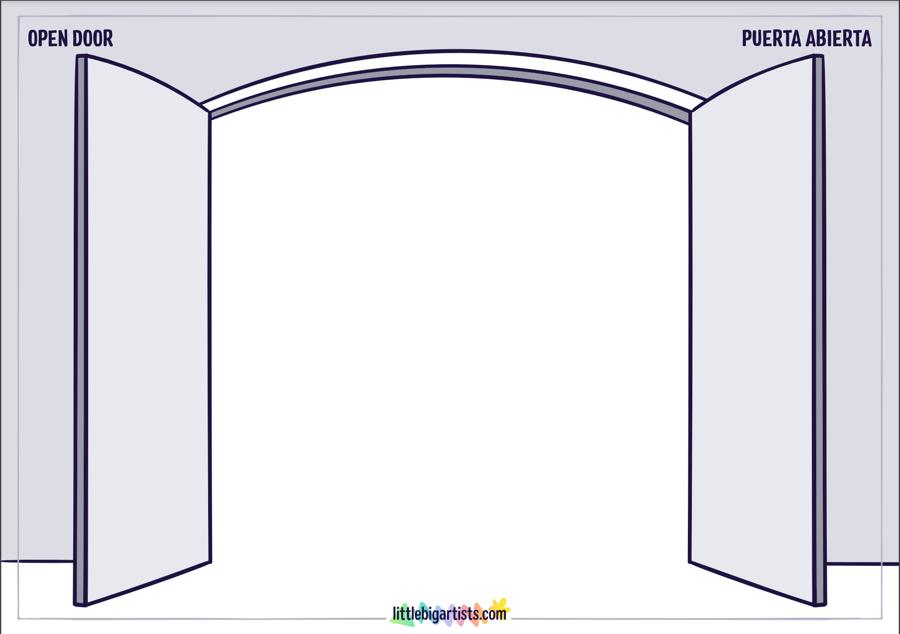
Books are sometimes windows, offering views of worlds that may be real or imagined, familiar or strange. These windows are also sliding glass doors, and readers have only to walk through in imagination to become part of whatever world has been created or recreated by the author. When lighting conditions are just right, however, a window can also be a mirror.
Directions:
Read the quotation by Dr. Rudine Sims Bishop. Then reflect on three texts—which could include books, films, songs, plays, poems, works of art, podcasts, or blogs— that have shown you something about yourself, others, and/or the world.



When has a text been like a mirror, reflecting one or more aspects of your identity or experience? How did it feel to see yourself in the story?
When has a text been like a window, offering you insight into someone else’s experience or world? What did you learn?
When has a text been like a sliding glass door, allowing you to enter and engage with another world for a moment in time? What did you experience?
Get a partner and take different sides on an issue.
Here are some debate topic ideas:
. Are pets useful or helpful?
. Should cell phones be allowed in the classrooms?
. Will computers replace teachers in the future?
. Should junk food need to be banned from school cafeterias?
. Are video games helpful or harmful for children?
. What is the impact of artificial intelligence on humanity?
. Is cooking class important for all students?
. Is it good to be bilingual?
. Should the government provide free healthcare for all citizens?
Udonis’s Aunt encouraged him to get into speech and debate in his school. Here are some resources to bring speech and debate to your school.
NATIONAL SPEECH AND DEBATE ASSOCIATION:
www.speechanddebate.org/
CLICK TO LEARN MORE!
MICHIGAN INTERSCHOLASTIC FORENSIC ASSOCIATION :
www.themifa.org/debate.html
CLICK TO LEARN MORE!
DEBATE TOPICS FOR YOUR SCHOOL:
www.collegetransitions.com/blog/good-debate-topics-for-high-school-students/
CLICK TO LEARN MORE!
www.speechanddebate.org/topic-creation-hub/
CLICK TO LEARN MORE!
weareteachers.com/middle-school-debate-topics/#fun
CLICK TO LEARN MORE!
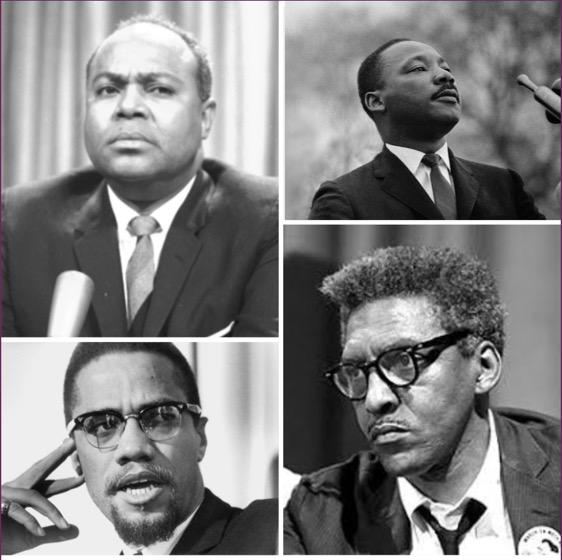
These prominent civil rights leaders all used sharp debate skills to bolster their advocacy. Rev. Dr. Martin Luther King Jr was a member of his high school’s debate team and competed in oratorical contests. Malcolm X was a middle school debater and debated some of the nation’s top debaters from Harvard and Yale when he participated in Norfolk Prison’s debating program. Bayard Rustin debated at Wilberforce College, while James Farmer competed at Wiley College (the HBCU famously featured in The Great Debaters).
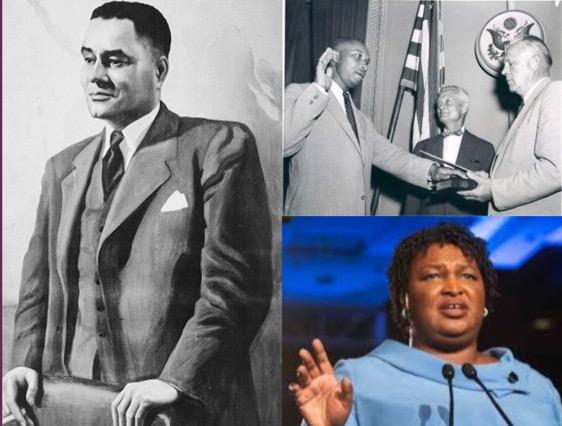
E. Frederic Morrow (upper right) was the first African American to hold an executive position at the White House. He participated for three years on the Hackensack debate team and was president as a senior.
First African American Nobel Peace Prize Winner, Ralph Bunche (left), won the award for his role in Israel’s mediation in the 1940s. He was a high school debate team member and valedictorian at Jefferson High School.
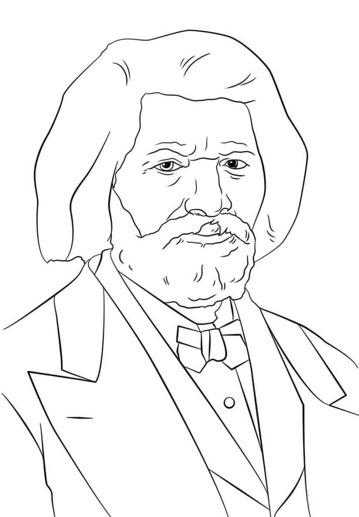
In the middle of the 19th century, as the United States was ensnared in a bloody Civil War, President Abraham Lincoln and abolitionist Frederick Douglass stood as the two most influential figures in the national debate over slavery and the future of African Americans. They met together three times in the White House, and while Douglass was at first harshly critical, he ultimately came to view Lincoln as “emphatically the Black man’s president: the first to show any respect for their rights as men.”
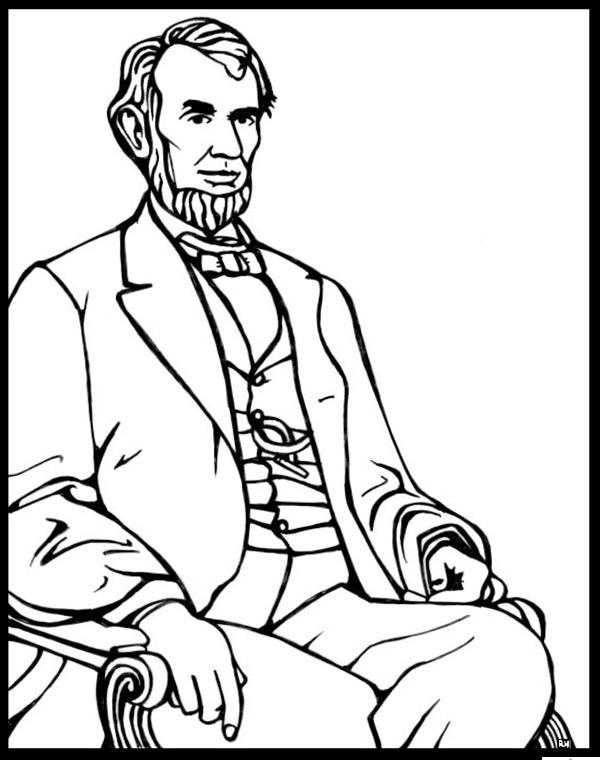
In the summer and the fall of 1858 two of the most influential statesmen of the time, Stephen Douglas and Abraham Lincoln faced off in a series of debates focused on slavery as they fought for a United States Senate seat representing Illinois. In the long term, the Lincoln-Douglas debates put Lincoln’s political career into the national spotlight, while at the same time hurting Douglas’ career, and influencing the 1860 Election that Lincoln won. Without Lincolns position on these debates, slavery would not have been abolished.
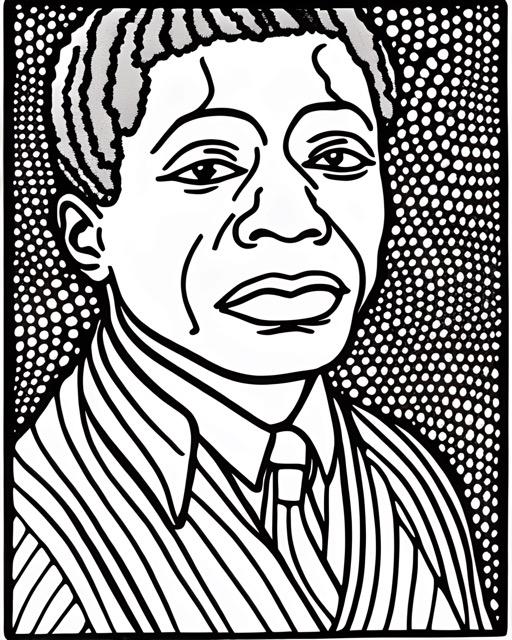
On February 18, 1965, at Cambridge University, James Baldwin, the African American novelist and essayist, debated William F. Buckley Jr., the editor and founder of the National Review, on the motion: “The American Dream is at the expense of the American Negro.” Together, Baldwin and Buckley represented opposite ends of the spectrum on the race issue.
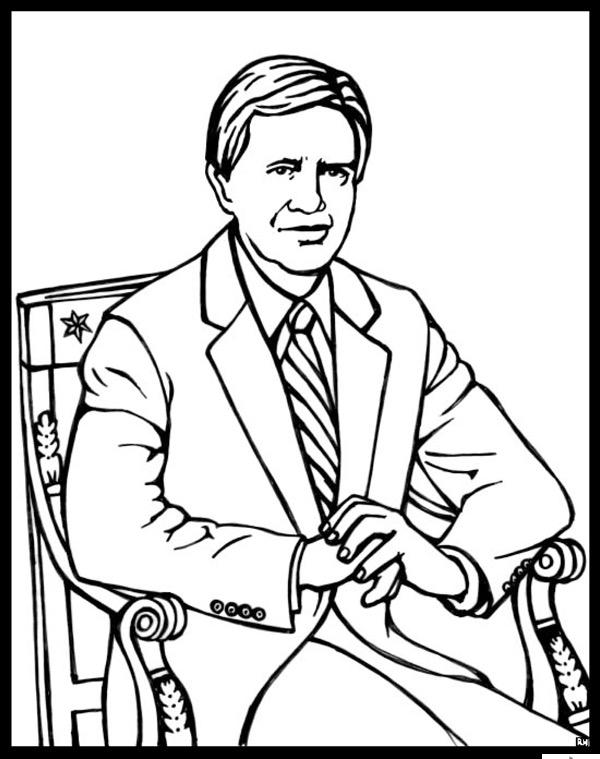
The three presidential debates in 1976 marked the first time in 16 years that presidential candidates engaged in general election debates and the first time in which an incumbent president participated. Carter himself said later: “If it hadn’t been for the debates, I would have lost. They established me as competent on foreign and domestic affairs and gave the viewers reason to think that Jimmy Carter had something to offer.”
Udonis and his mother were dealing with the loss of Udonis’ father. Grief can require a lot of support. Here are some resources that you may use to support anyone going through grief.
Dougy Center:
The Children’s Room:
Hospice of the Valley:
Covid hit Udonis’s family hard. He wasn’t the only one hit. Here are some resources to deal with life post covid.
Pacific Teen Treatment:
UMass Chan Medical School:
World Health Organization:
Michigan Department of Education:

NOW YOU’VE SEEN A MOSAIC SHOW!
Are you interested in learning more or becoming part of the Mosaic Family?
Please check our website at: mosaicdetroit.org
For more information on getting involved with Mosaic’s programming you can email info@mosaicdetroit.org
With arts as the motivating catalyst Mosaic’s Ensemble program develops and inspires the behaviors and critical life and learning skills youth need to have successful, empowered lives through adulthood. Young artists (Grades 7-12) transform as they engage in intensive training, workshopping tried and true, as well as experimental works and cultivating their artistic voice through the creation of original work. The Ensemble program is comprised of Acting, Singing, and Technical Theatre companies.
Mosaic Youth Theatre of Detroit’s Junior Ensemble is comprised of young artists between 5th and 8th grade. Junior ensemble rehearsals emphasize growing young artists’ confidence and skills, technical and interpretive, fostering emotional intelligence and critical thinking skills, and providing them with developmentally appropriate performance and community service opportunities.
Through theater & music games, craft projects, dance breaks, mindfulness moments, and play rehearsals, each session will provide young artists with an opportunity to create incredible memories that will surely last a lifetime. Scholarships available.
To register, visit: mosaicdetroit.org/our-programs/summercamp/
Summer camp fees are $300 for two weeks, plus a non-refundable $25 registration fee.
This is a six-week paid mentorship experience for young composers and playwrights in 8th through 12th grade. Students will submit an idea or rough draft for a play or a musical composition. 16 young artists will be chosen to participate in professional workshops, field trips and individual mentoring sessions where they will take their ideas and develop them into full-fledged works of art. The pieces will then be performed at our New Voices Detroit Festival on August 2nd. Compensation for participants is $15 per hour.
Please apply at mosaicdetroit.org/new-voices-detroit/
Mosaic’s Summer Ambassador Ensemble will consist of 16 paid young artists (aged 14 and up) hailing from all around the metro Detroit area. These young actors, singers, and technicians will work collaboratively with professional theatre and music directors to mount a play geared toward 3rd-8th grade audience members. The young technicians will design and build the technical elements of the play while the actors and singers rehearse and perform it. The play will tour recreational centers, summer camps, and other settings in communities throughout Detroit. Compensation for performers is $15 per hour.
Summer Teaching Interns will be paid to work alongside seasoned teaching artists and arts administrators to offer a safe, high-quality summer artistic experience for youth in grades 3-8. Interns will become proficient in: Program delivery & evaluation, student evaluation, and classroom management. Compensation for teaching interns is $15 per hour.
Mosaic’s Summer Ambassador Ensemble will consist of 16 young artists (aged 14 and up) hailing from all around the metro area. These young actors, singers, and technicians will work collaboratively with professional theatre and music directors to mount a play geared toward 3rd-8th grade audience members. The young technicians will design and build the technical elements of the play while the actors and singers rehearse and perform it. The play will tour recreational centers, summer camps, and other settings in communities throughout Detroit. It will engage audience members with talkback discussions following each performance, during which young audience members will have the chance to connect with the Mosaic ensemble members. The show will last about 45 minutes.
If you are interested in hiring us to come out to your community function, please email me at aspencer@mosaicdetroit.org.
Cost: $1200 non-profit, $2000 corporate
MOSAIC MOBILE:
Mosaic Mobiles are dynamic one-off micro-workshops that engage young people in the metro-Detroit community who have not encountered Mosaic before. It also serves as a training opportunity for our Youth Ambassador Ensemble members. Mosaic young artists in the Mosaic Ambassador Ensemble conduct a workshop full of collaborative games and activities to expose young people (3rd-8th graders) to musical and theatrical skill building and exploration. The workshop culminates in a short sharing of what the young people learned and created.
Cost: $500
Young people in the Mosaic’s Acting and Singing Residency will take part in beginning level acting and singing exercises. Participants will learn the basics of playwriting and songwriting, then write their own show. In addition to this they will learn important acting and vocal techniques. Through the rehearsal process, participants practice reading skills and gain an understanding of literary elements, such as character, setting, and plot. By the conclusion of the class, participants have been exposed to a sample of the Mosaic experience. They will have a lot of fun while acting, singing, and feeling the sense of achievement that is the result of working together as an ensemble to make art.
Cost: ($2,000-8,000 depending on length of classes)
We would love to invite you all to a tour of our space. You will receive a brief history of mosaic programs and gain insight into the work we do with the young artist we serve.
You can register as a group here: eventbrite.com/e/in-person-empower-hour-tours-tickets-429314289597